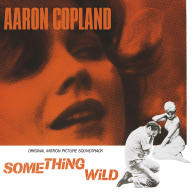Copland was the youngest of five children born to Harris and Sarah Copland, Lithuanian Jewish immigrants who owned a department store in Brooklyn. He did not take formal piano lessons until he was 13, by which time he had also begun writing small pieces. Instead of attending college, Copland studied theory and composition with Rubin Goldmark and piano with Victor Wittgenstein and Clarence Adler, and attended as many concerts, operas, and ballets as possible. In 1921, he went to Fontainebleau, France, taking conducting and composition classes at the American Conservatory. Copland went on to study in Paris with Ricardo Viñes and Nadia Boulanger and spent the next three years soaking up all the European culture, both new and old, that he could. He learned to admire not only composers like Stravinsky, Milhaud, Fauré, and Mahler, but others such as author André Gide. Boulanger's performance of Copland's 1924 Organ Symphony with Koussevitzky was the beginning of a friendship between the conductor and composer that led to Copland teaching at the Berkshire Music Center (Tanglewood) from 1940 until 1965.
After his return to America, Copland drifted toward an incisive, austere style that captured something of the sobriety of Depression-torn America. The most representative work of this period -- the Piano Variations (1930) -- remains one of the composer's seminal efforts. He tried to avoid taking a university position, instead writing for journals and newspapers, organizing concerts, and taking on administrative duties for composers' organizations, trying to promote American music. By the mid-'30s, taking the direct engagement of and communication with audiences as one of his central tenets, Copland's compositions developed (in parallel with other composers like Virgil Thomson and Roy Harris) an "American" style marked by folk influences, a new melodic and harmonic simplicity, and an appealing directness free from intellectual pretension. This is nowhere more in evidence than in Copland's ballets of this period, and it finally earned him the respect of the general public.
While Copland gradually became less prolific from the mid-'50s on, he continued to experiment and explore "fresh" means of musical expression, including a highly individual adoption of 12-tone principles in works like the Piano Fantasy and Connotations for orchestra. Still, the fundamentally lyrical nature of Copland's language remained intact and occasionally emerged -- with an often surprising retrospective air -- in works like the Duo for flute and piano (1971). He continued to teach and write and received numerous awards both in America and abroad. In 1958, he began conducting orchestras around the world, performing works by 80 other composers as well as his own over the next 20 years. By the mid-'70s, Copland had for all intents and purposes ceased composing. One of the last of his creative accomplishments was the completion of his two-volume autobiography (with musicologist Vivian Perlis), an essential document in understanding the growth of American music in the 20th century. ~ TiVo Staff, Rovi














